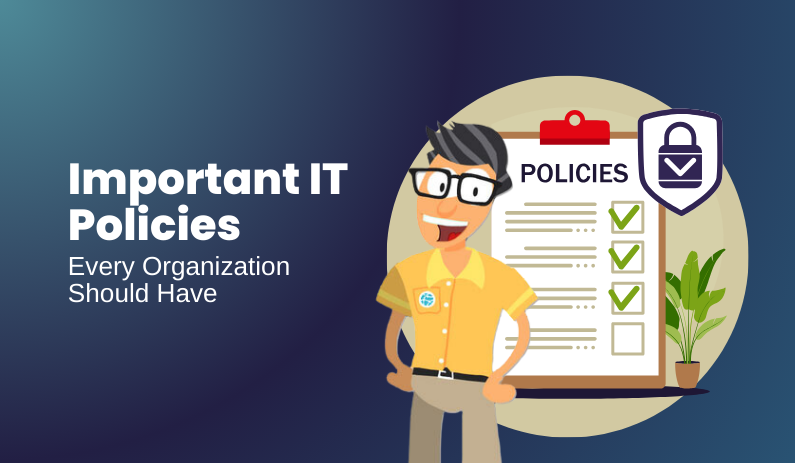In today’s digital age, having robust IT policies in place is crucial for any organization. These policies help ensure the security and privacy of sensitive data and promote responsible and ethical use of technology.
IT policies also help to protect the organization from legal risks, as they provide a framework for the responsible use of IT resources. Here are some important IT policies that every organization should have:
Acceptable Use Policy: This policy outlines the acceptable use of IT resources, including computers, networks, and software. It sets guidelines for employees on how to use these resources appropriately and responsibly, such as not accessing unauthorized websites or using company IT resources for personal gain. It also outlines the consequences for not adhering to the policy.
Data Protection Policy: This policy outlines the procedures for protecting sensitive data, such as personal information, financial data, and confidential business information. It includes guidelines for data storage, backup, and access control, and procedures for preventing data breaches and responding to security incidents.
Password Policy: This policy outlines the requirements for creating and managing passwords. It includes guidelines for password complexity, length, and expiration, as well as procedures for reporting lost or stolen passwords and implementing two-factor authentication.
Internet Usage Policy: This policy outlines the guidelines for using the internet at work, including appropriate use of social media, email, and other online resources. It also includes procedures for reporting incidents of cyberbullying, harassment, or other inappropriate online behavior. It should also cover the use of personal devices on company networks, and the risks associated with this.
Mobile Device Policy: This policy outlines the guidelines for using mobile devices, such as smartphones and tablets, on company networks. It should cover topics like acceptable use, data security, and encryption, and procedures for managing lost or stolen devices. It should also include guidelines for employees on how to protect their devices from malicious software.
Organizations should take a proactive approach to security by implementing comprehensive IT policies that include measures for securing devices, installing updates and patches, and reporting lost or stolen devices. These measures help protect against malicious activities, such as malware attacks, data breaches, and unauthorized access, and promote responsible and ethical technology use. Regularly updating and patching devices is essential to keeping them secure, as is reporting any lost or stolen items promptly. Furthermore, organizations should ensure that all devices are password protected and encrypted, and that only authorized personnel have access to sensitive data. By taking these steps, organizations can help ensure the security and privacy of their data and foster a culture of responsible and ethical use of technology throughout their organization.
Modo Networks goes beyond hardware, aiding customers in developing robust IT policies. Our expertise extends to crafting comprehensive policies that align with your organization’s needs. Secure your data, promote ethical tech practices, and minimize risks. Ready to fortify your IT framework? Give us a call today.

Experience reliable IT solutions and see real results with our dedicated, expert team.
3010 LBJ Freeway, Suite 1415
Dallas, Texas 75234
Phone: (214) 396-9131
Support: (214) 299-8580
Fully Managed IT
Support
Contact
Terms of Service
Mobile Terms of Service


